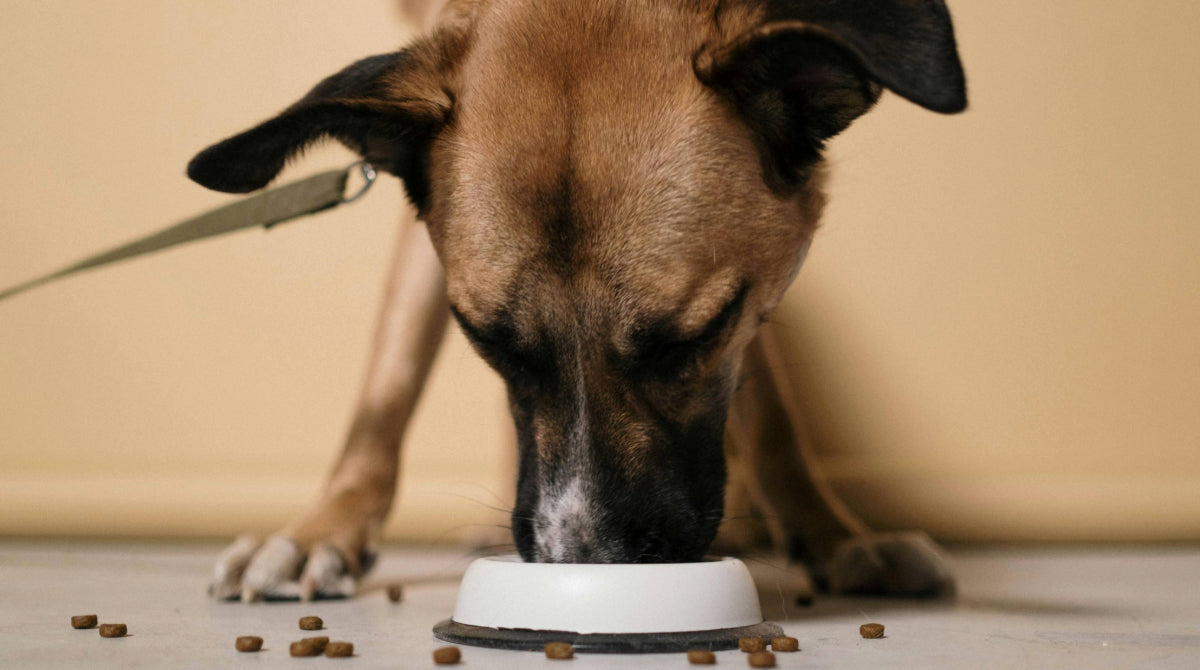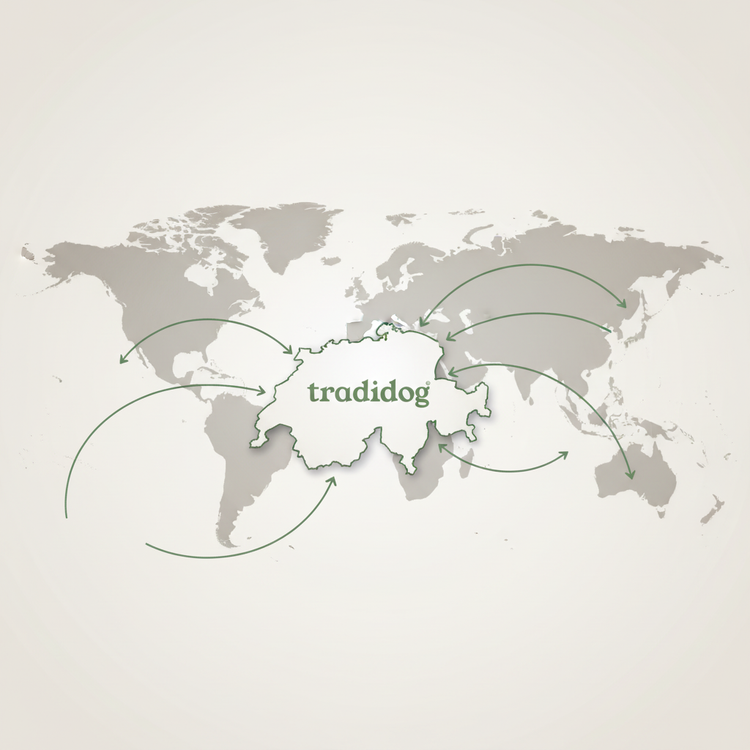
Can dogs eat peanuts?
If dogs could talk, they'd probably often ask us, "What do you have there, and can I eat that too?" Opinions are divided when it comes to peanuts. Are they a healthy snack, or are they better suited only to humans? To ensure your four-legged friend's well-being, we'll take a look at whether and when peanuts can be included in your dog's diet.
Can dogs safely eat peanuts?
The answer is: It depends! Peanuts are generally not toxic to dogs, but there are some important points to keep in mind.
- Salted or spiced peanuts: Stay away! Salt and spices are not suitable for dogs and can lead to serious problems. Too much salt can cause stomach problems, cardiovascular problems, or even salt poisoning. Spices like chili or paprika can irritate your dog's mucous membranes.
- Natural, unsalted peanuts: Dogs can eat these in moderation, as long as they don't have an allergy. Peanuts contain healthy fats, protein, vitamin B3, and vitamin E, which can be beneficial for your dog. However, they are also very high in calories, which can lead to obesity if consumed regularly.
- Allergies and intolerances: Some dogs are allergic to peanuts. Signs of an allergy include:
- itching
- Skin redness
- Vomit
- Diarrhea
- Breathing problems or swelling (emergency!) Give your dog only a tiny amount the first time and observe him closely. If an adverse reaction occurs, consult your veterinarian immediately.
- Raw peanuts in the shell: These are not recommended. The shell is difficult to digest and can cause digestive problems or even constipation. There is also a risk of choking, especially in smaller dogs.
Why should you be careful with peanuts?
Although peanuts contain beneficial nutrients, they should always be considered an occasional snack and not a regular part of your dog's diet. Too much fat can lead to pancreatitis (inflammation of the pancreas) over time. Dogs with existing health problems, such as obesity or sensitive stomachs, should avoid peanuts altogether.
Alternatives to peanuts
There are many alternatives that are safer and often healthier. Here are a few ideas for snacks your dog can enjoy without worry:
Healthy alternatives
- Carrots : Crunchy, healthy, and perfect for dental care. They're low in calories and rich in beta-carotene.
- Apple slices (without seeds) : Fresh, delicious, and rich in fiber and vitamins. Be sure to remove the seeds, as they contain traces of cyanide.
- Banana pieces : In large quantities, a sweet treat that provides potassium and vitamin B6.
- Cucumber : Refreshing and low in calories—perfect for hot days. Cucumbers are also rich in water, helping to hydrate your dog.
- Sweet potatoes (cooked) : Nutritious and easily digestible, they contain many vitamins and fiber.
Nut-based alternatives
Other nuts can also be suitable as a snack in moderate amounts, provided they are specially prepared and safe for dogs:
- Almonds (unsalted and in small amounts) : Almonds are not toxic, but they are difficult to digest and should only be given occasionally. Smaller dog breeds should avoid them.
- Chestnuts (cooked) : Sweet chestnuts are a good, dog-friendly alternative. They are low in fat and contain beneficial vitamins such as B6 and C.
- Walnuts (not black walnuts) : These can be given in tiny amounts, but they contain a lot of fat and should only be included occasionally.
- Pecans and macadamia nuts : These are absolutely taboo because they are toxic to dogs and can cause severe poisoning.
If you give your dog nut-based products, make sure they do not contain harmful additives such as sugar, salt, or xylitol.
Can peanut butter be an option?
Peanut butter is often touted as a snack for dogs. However, the same rule applies here: only in moderation and without additives such as sugar, salt, or the dangerous sweetener xylitol, which is highly toxic to dogs. A small dab on a dog toy or as a hiding place for medication can be fine – but always check the ingredients list.
Foods that dogs should never eat
In addition to the alternatives mentioned above, there are some foods that should be avoided at all costs because they are toxic or indigestible for dogs:
- Chocolate : Contains theobromine, which is extremely toxic to dogs and can cause heart problems or even death.
- Onions and garlic : These can destroy your dog's red blood cells and lead to anemia.
- Grapes and raisins : Even small amounts can lead to acute kidney failure.
- Avocado : Contains persin, which can cause gastrointestinal upset and shortness of breath.
- Foods containing caffeine : Coffee, tea or cola can lead to overstimulation of the nervous system.
Please take a look at our comprehensive blog post on this topic.
Conclusion
Peanuts can be an occasional snack for dogs in small quantities, provided they are unsalted, unseasoned, and without the shell. They contain beneficial nutrients, but due to their high fat content, they are only suitable in small amounts. Allergies are another potential risk, so you should always exercise caution.
If you want to play it safe, there are plenty of healthier alternatives like carrots, apple slices, or cucumbers that your dog is sure to love. And always remember: snacks are a great reward, but they should never replace the main meal.
One last tip: Don't let your dog's big eyes persuade you to give him your seasoned snacks—no matter how sweet he looks! His health should always come first.
Share

